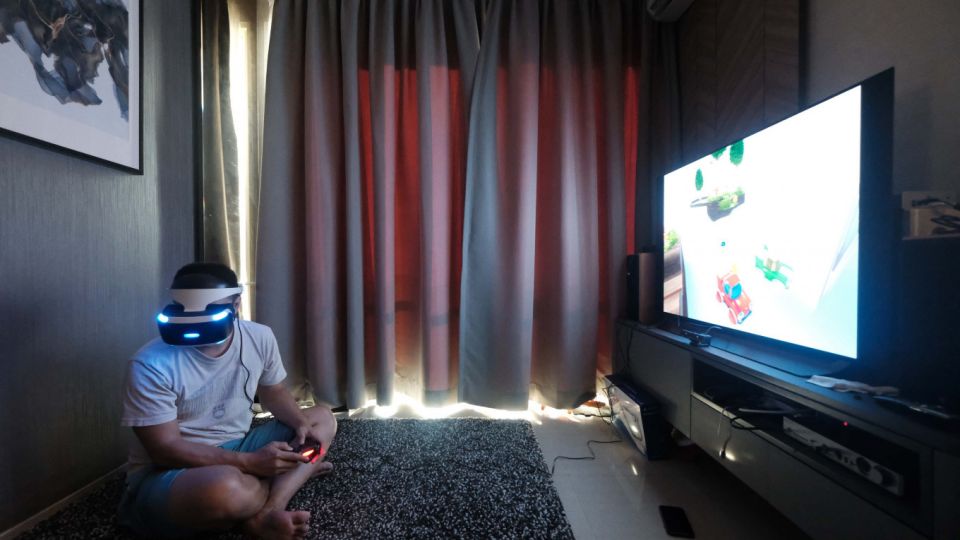October 6, 2022
JAKARTA – After securing at least US$100,000 worth of deals through a recent major trade fair in Germany, Indonesian game developers are eying the next level in their quest for a greater role in the booming industry.
“There are confirmed deals worth US$100,000 up until now [from Gamescom]; we expect more deals to materialize,” said Game Association Indonesia (AGI) chairman Cipto Adiguno on Tuesday.
Gamescom, which was held in Cologne in late August this year, is an opportunity for developers from around the world to meet publishers who have the marketing machine and financial muscle to make games known globally and connect with advertisers.
Niji Games, iOTA and Satriver Studio are among 13 Indonesian delegations taking part in this year’s Gamescom, with the first attending the event on-site and the other two joining in virtually.
“Several publishers in Gamescom have expressed interest in reviewing Niji’s games further to figure out the potential for cooperation,” Niji Games CEO Nikko Soetjoadi told The Jakarta Post on Monday.
Cipto mentioned that, aside from Gamescom, developers were also banking on other important international business events, such as the Tokyo Game Show held last month and the ongoing Indonesia Game Developers Exchange (IGDX) in Bali and Level Up Kuala Lumpur, as well as Gamescom Asia, which will be held in the second half of October.
“The Game ecosystem in Indonesia is getting better thanks to government support like sending delegations to business events abroad,” said Cipto, pointing out that going to such events was a vital ingredient to nurture the industry.
Confirming that, game developers stated that Indonesia’s gaming ecosystem had been blossoming thanks to government support. However, they said, a close-knit community as well as solidarity in the industry were just as significant.
“The ecosystem for game developers is now starting to grow thanks to support from associations, communities and the government. A few years ago, developers had to learn everything by themselves, without any support whatsoever,” said Nikko.
iOTA, another Indonesian developer attending Gamescom this year, said more established game developers were always open to sharing their knowledge and experience, which was a big help.
“Experienced developers, the regional game developer community, the association, the government and educational institutions, each have their own important roles,” said iOTA marketing manager Arya Wiryawan Wibowo.
While clearly making progress, game development in Indonesia, according to industry insiders, also has some big challenges to tackle, first and foremost a dearth of human and financial resources.
“Investment is lacking, especially for relatively large-scale game projects [above $500,000], and [there is a] lack of senior talent with specialized expertise,” said Cipto.
However, Cipto said the government was on track to fix the human resources problem by hunting for and incubating new talent, such as holding the IGDX and the Esports President’s Cup as well as hosting the World Esports Championships this year.
Satriver Studio director and founder Dalih Sugih Pangerti Septiaji noted that widespread prejudice about gaming severely impacted the growth of talent in the country.
“Human resources are very much lacking, people do not have an open mind about game developing jobs, despite how much fun the job offers,” Dalih told the Post, and iOTA’s Arya concurred.
“Media also play a role in national game development, especially to seize the local market. With games becoming more mainstream, competition for domestic market share is becoming relentless. We hope local developers’ achievements get media exposure, so that the local industry’s growth will get pushed by the people of Indonesia themselves,” Arya said.
“[It is also problematic] from a sales or marketing perspective. Indonesia has many talented people who can make good games, but not so many who can make a game that sells,” he added.
When asked about their sales strategy to go international, Dalih said, “I don’t know, really, our branding is Satanist. The games we’ve created are merely birthed out of chitchat held over a drink. Maybe just a stroke of luck.”
Cipto told the Post that making deals with foreign publishers was the best way for Indonesian game developers to go international, given how much more experienced they are in market segmentation and promotion strategies.
Business training courses held by ministries or other government agencies were helpful, Cipto said, while the Indonesia Game Rating System as well as Government Regulation No. 24/2022 on the creative economy stimulated the gaming ecosystem.


